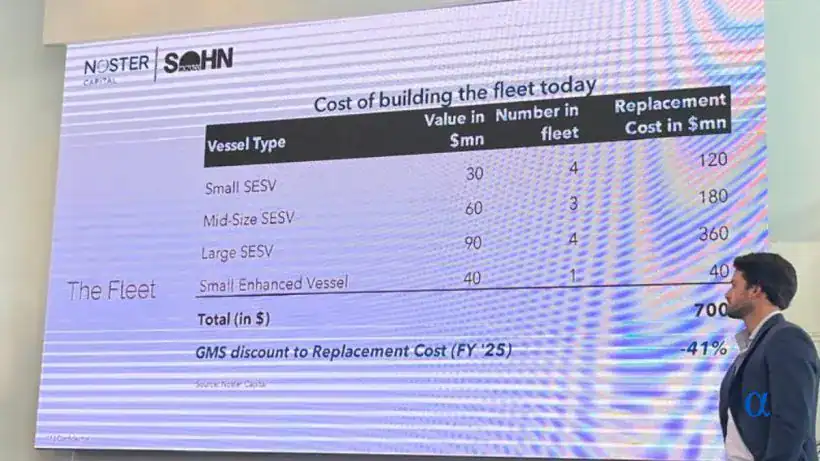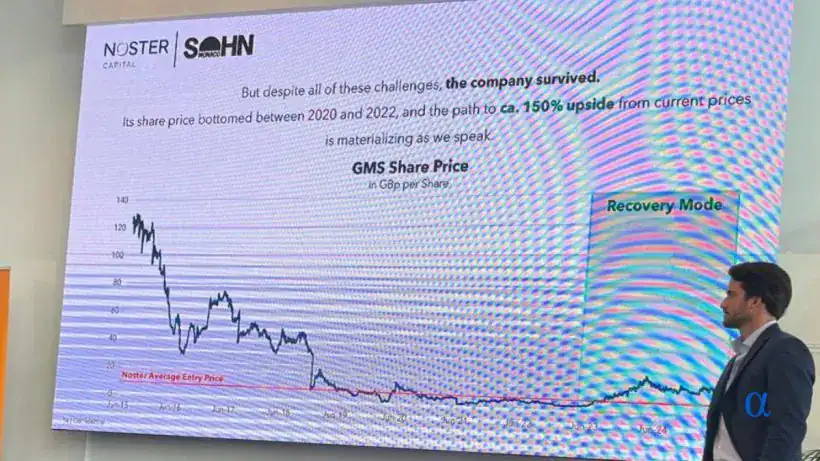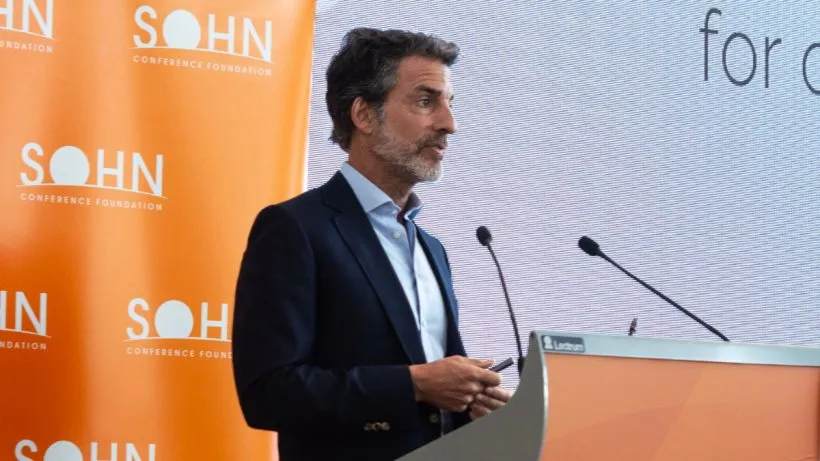Noster Capital's investment strategy is based on deeply contrarian philosophy, championed by its Portfolio Manager and Managing Partner, Pedro De Noronha. As highlighted at the 2025 Sohn Monaco Conference and in various insights, Noster Capital seeks out "deeply, deeply out of favor" sectors and assets, a strategy that has enabled them to outperform the S&P by 80% since 2019 without holding any "Magnificent Seven" stocks that have dominated recent market returns.
Also our coverage of the 2025 Sohn Hong Kong Conference, 2025 Forbes Iconoclast Summit and the Best Alternative Investment Fund Conferences for 2025.
2025 Sohn Monaco Conference - Noster Capital's Pedro De Noronha
De Noronha, whose career spans tenures at Merrill Lynch and JP Morgan, launched Noster Capital in 2007. He refined his approach in the late 2010s into a "triple long short strategy" focusing on value equities, physical gold, and Bitcoin, underpinned by a macro overlay. Noster Capital, managing just under $100 million in assets, embraces flexibility, investing globally across asset classes without being constrained by typical fund classifications like long-short equities or global macro. This agility is a deliberate choice, as De Noronha believes it allows them to invest anywhere in the world and any asset class, even if it means not fitting neatly into common investor boxes.
A cornerstone of Noster Capital's approach is their skepticism towards conventional wisdom. De Noronha explicitly states that "most sell side research is background noise," preferring to leverage a global network of expertise and his own quarter-century of investment experience. He emphasizes that "timing is everything," a philosophy that echoes his background as a professional surfer, where success hinges on acting "when the waves are biggest, the slopes are steepest, and the reward is greatest".

The Unconventional Oil Bet: A Thesis Against the Tide
Noster Capital’s contrarian stance is perhaps most vividly exemplified by their significant bet on the oil sector. For over a decade, oil has been "deeply, deeply out of favor," often treated as a "pariah asset". De Noronha attributes this widespread aversion primarily to two dominant narratives: stringent ESG (Environmental, Social, and Governance) policies and persistent "peak oil" concerns.
According to Noster Capital, ESG policies implemented since 2014 have led to a severe "underinvestment in the sector". This decade of neglect has created a pressing need for an estimated $4 trillion of capital over the next five years just to meet existing demand. Failure to secure this investment, De Noronha warns, risks jeopardizing 20% of non-OPEC oil production.
Furthermore, Noster Capital dismisses the "peak oil" narrative as historically inaccurate and fundamentally flawed. They contend that global oil demand will continue to grow, largely driven by the vast majority of the world's population residing in emerging markets (EMs). De Noronha points out that 80% of the world's population lives in countries where energy demand and oil consumption are currently very low. As these economies develop and their populations move "from consuming two to three barrels of oil per year to at least double that," global demand is set to increase significantly. This perspective fundamentally challenges the prevailing view that oil demand will imminently decline.
Crucially, Noster Capital's specific investment in the oil services sector does not even require a significant surge in oil prices to generate substantial returns. De Noronha suggests that "this talk to work, so you don't need oil to go up. It could even go down," asserting that "100% plus is kind of in the bag" regardless. This highlights their focus on fundamental value and catalysts rather than solely on commodity price speculation.

Small-Cap Oil Stock: A Deep Value Opportunity
Noster Capital’s flagship investment in the oil sector is


